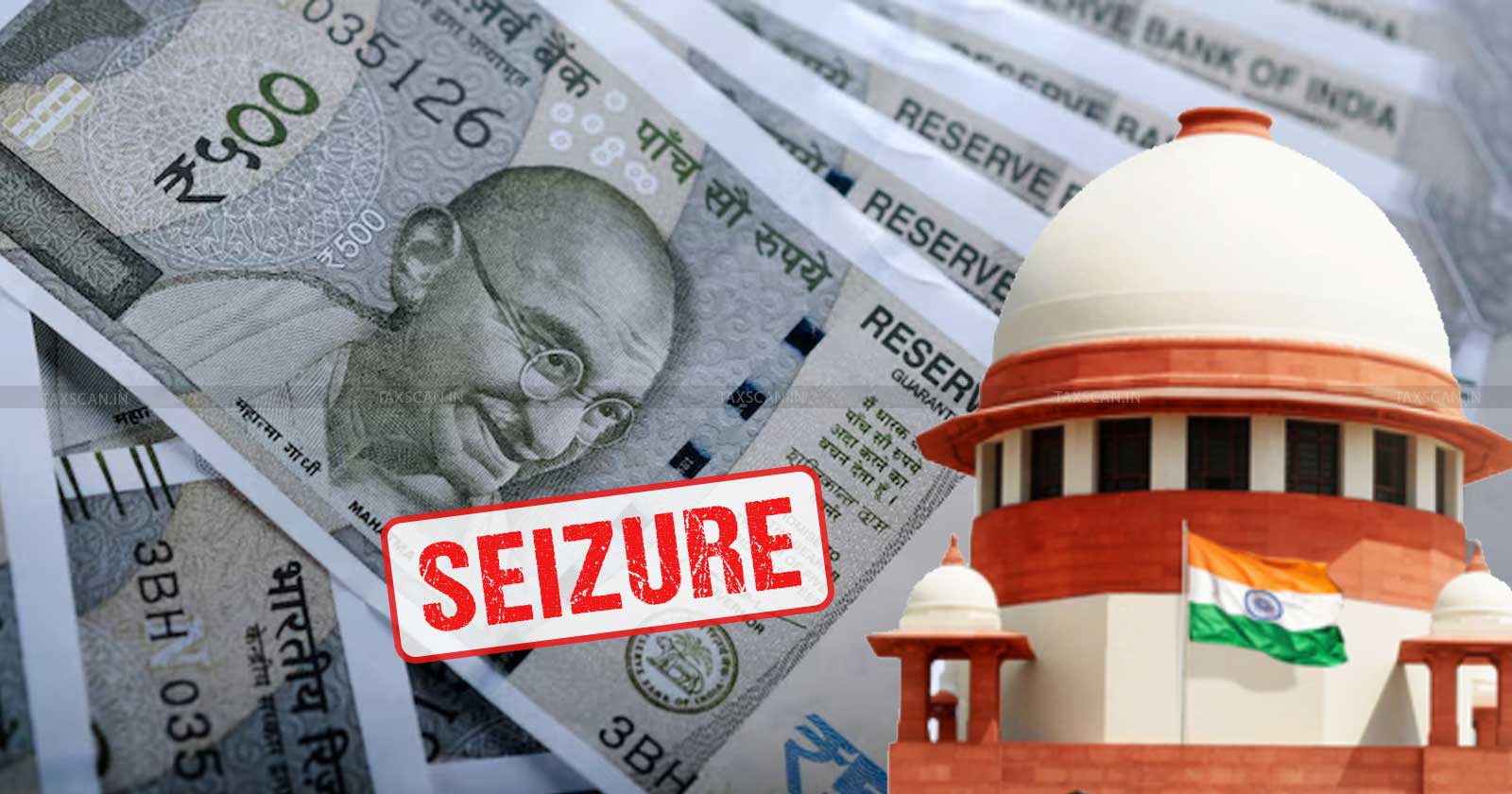No Power to Seize Currency under GST Act, reaffirms Supreme Court [Read Judgement]
Search and seizure operations were conducted, alleging possession of unaccounted cash and silver bars

GST – Supreme Court – GST Act – Goods and Services Tax – seize currency under GST Act – TAXSCAN
GST – Supreme Court – GST Act – Goods and Services Tax – seize currency under GST Act – TAXSCAN
In a significant legal development, the Supreme Court has dismissed the Special Leave Petition ( SLP ) filed by the department regarding the authority of the proper officer to seize currency under Section 67(2) of the Central Goods and Services Tax ( CGST ) Act, 2017.
The dismissal came from the two-judge Supreme Court Bench comprising Justice Abhay S. Oka and Justice Augustine George Masih, confirming the Delhi High Court's earlier ruling in the case of Bhagwan Gupta and others vs. Commissioner of CGST.
Complete Supreme Court Judgment on GST from 2017 to 2024 with Free E-Book Access, Click here
The proper officer had conducted search and seizure operations against Bhagwan Gupta, alleging possession of unaccounted cash and silver bars. The department argued that these assets were likely sale proceeds from fictitious transactions. However, the High Court had clarified that Section 67(2) does not empower officers to seize currency or other valuable assets simply because they may represent unaccounted wealth.
The Delhi High Court highlighted that the legislative intent of Section 67(2) is clear: it allows the seizure of books, documents, or items pertinent to an inquiry, but does not extend to currency or valuable assets.
Applying the mischief rule, rooted in the historical Heydon's case, the Court asserted that the purpose of the CGST Act is not to pursue unaccounted wealth. The provision is not intended for asset seizure aimed at tax recovery, reinforcing the argument that Section 67 should not be interpreted to authorise such drastic measures.
The Court noted that while the term "things" could encompass money, its application must be carefully considered. The powers of search and seizure are inherently severe and should not be interpreted broadly to include valuable assets without substantial evidence linking them to tax evasion.
The Delhi High Court had allowed the petition, ruling that the powers of the proper officer do not extend to seizing currency under Section 67(2) of the CGST Act.
Complete Supreme Court Judgment on GST from 2017 to 2024 with Free E-Book Access, Click here
Following this ruling, the department filed an SLP with the Supreme Court, seeking to overturn the High Court's decision. However, the Supreme Court concluded that there was no valid basis for interference with the lower court's judgement, stating, “No case for interference is made out in exercise of our jurisdiction under Article 136 of the Constitution of India.”
This ruling clarifies the limitation on powers of the proper officer when it comes to search and seizure under the Central Goods and Services Tax Act, 2017.
To Read the full text of the Judgement CLICK HERE
Support our journalism by subscribing to Taxscan premium. Follow us on Telegram for quick updates


